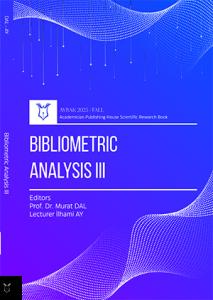Sustainable Development Goals And Interdisciplinary Research Trends: Alignment Of Academic Output With Global Progress
Özet
This chapter conducts a bibliometric and comparative analysis of global academic outputs addressing the 17 Sustainable Development Goals (SDGs) between 2015 and 2025. The study’s distinctive contribution lies in its weighted goal-level scoring analysis, which introduces a novel quantitative framework for aligning academic intensity with official SDG progress classifications. Using data from the Web of Science Core Collection and analyzed through Bibliometrix in R, the study identifies 41,297 documents with an annual growth rate of 38.5%, reflecting accelerated scholarly engagement with sustainability themes. The analysis reveals that SDG 13 (Climate Action) dominates academic attention, followed by SDG 9 (Industry, Innovation and Infrastructure) and SDG 12 (Responsible Consumption and Production), indicating a strong emphasis on environmental and technological domains. In contrast, SDGs related to equality, biodiversity, and water (SDG 6, 10, and 15) remain underrepresented, revealing persistent thematic imbalances. Keyword co-occurrence and thematic evolution analyses reveal a transition from conceptual discussions to innovation-driven research that integrates artificial intelligence, the circular economy, and education for sustainable development. Country-level and collaboration analyses indicate a high concentration of research in advanced economies, while lower-income regions remain underrepresented despite their vulnerability. The findings reveal both convergence and divergence between research intensity and UN-reported progress, underscoring the need for a more balanced, interdisciplinary, and policy-linked research agenda to accelerate equitable global progress toward the 2030 Agenda.

